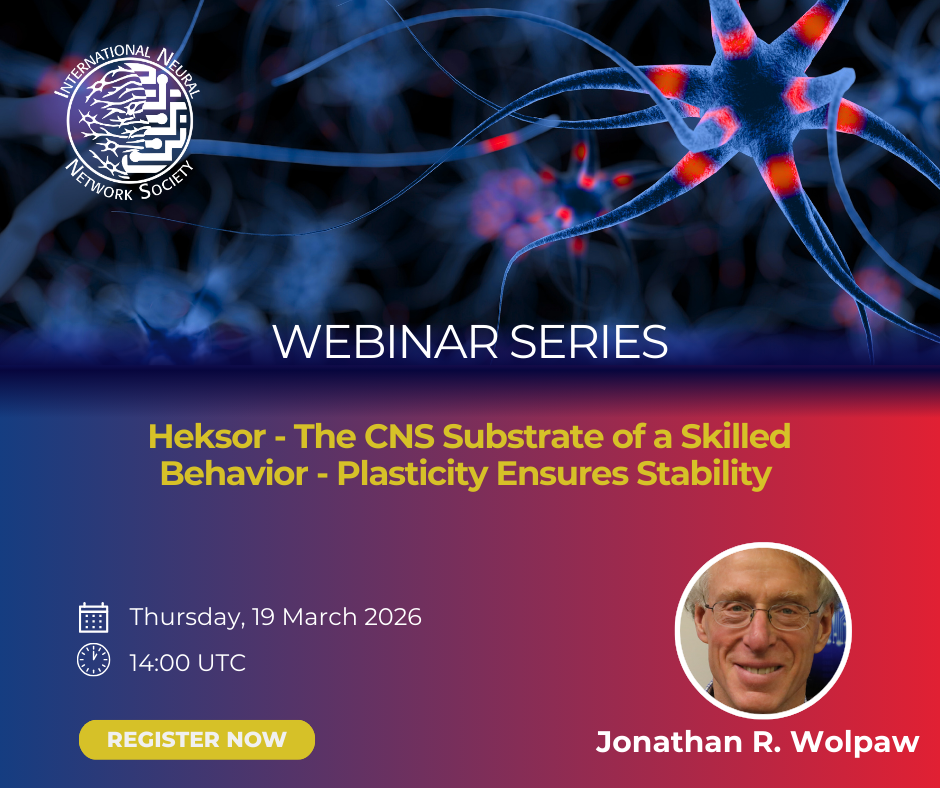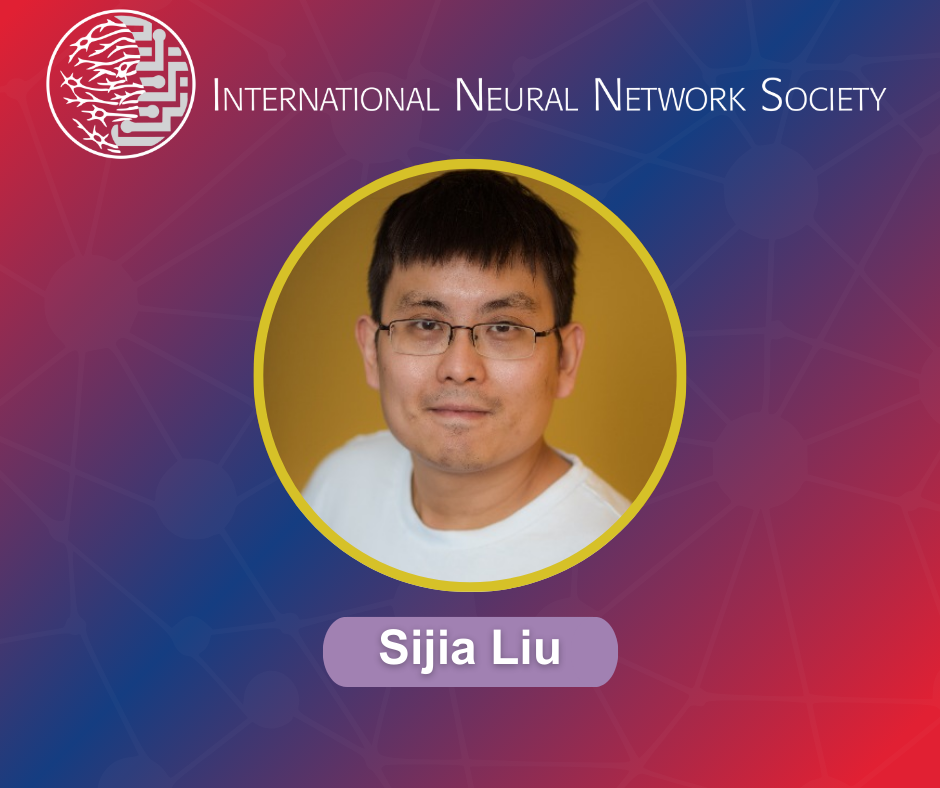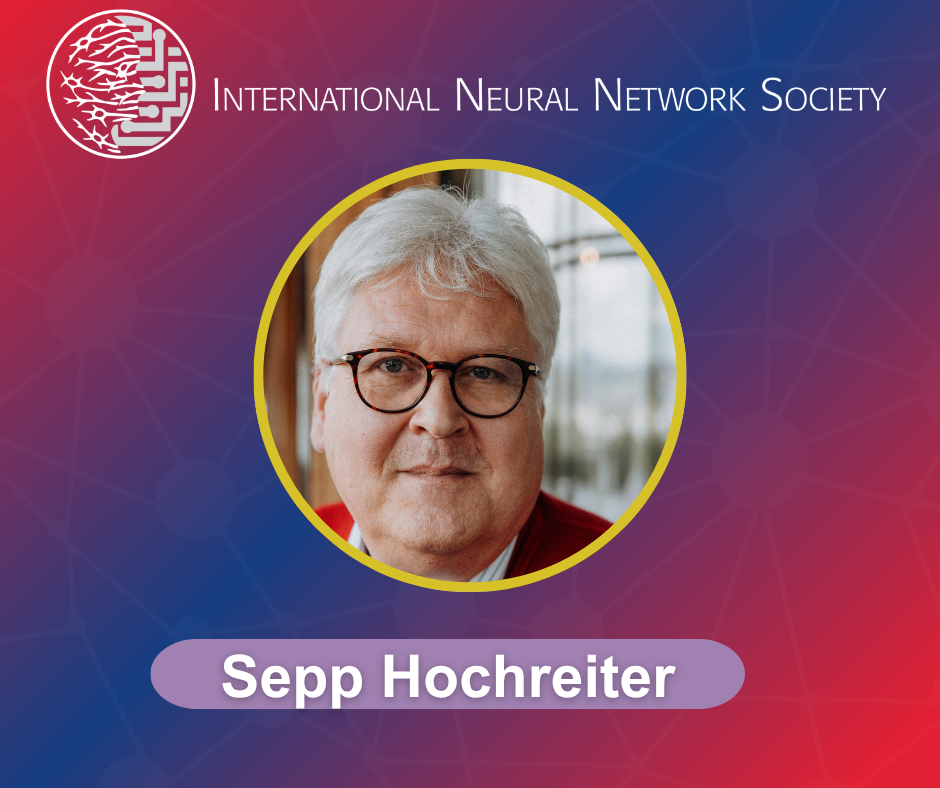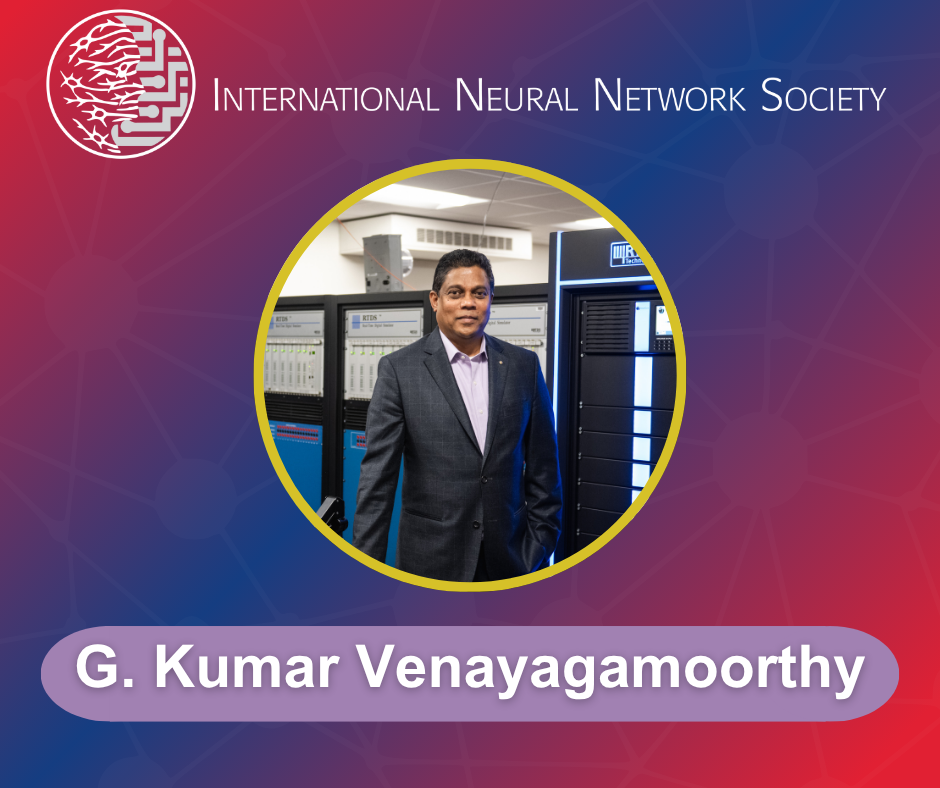INNS Webinar SeriesWelcome to the INNS Webinar Series. This collection of webinars serves as a virtual learning center for students and professionals to learn and engage in research activities related to neural networks. The portal features lectures from our Webinar Series. You are invited to attend the webinars live, held bi-monthly. Upcoming Webinars Abstract: Recent recognition that the CNS remains plastic through life requires a new paradigm to explain how skills are acquired and maintained in a continually changing CNS. The paradigm’s core is a newly recognized CNS entity, now called a “heksor” from the ancient Greek “hexis” (JPhysiol 2022 DOI:10.1113/JP283291). A heksor produces a skilled behavior (e.g., locomotion). It is a distributed network of neurons and synapses that may extend from cortex to spinal cord. A heksor has two unique properties. First, it changes itself as needed to maintain the key features of its skill, the attributes that make the skill satisfactory. Thus, the CNS activity, muscle activity, and kinematics of locomotion may change, but its key features (e.g., upright posture, good balance, right/left symmetry, acceptable metabolic cost) are maintained. Second, through their concurrent changes, the many heksors that share the CNS negotiate the properties of the neurons and synapses they all use. Heksors keep the CNS in a negotiated equilibrium that enables each to maintain its skill. While a heksor’s neurons and synapses change continually through life, the key features of the skill the heksor produces do not change. These key features are the memory of the skill; it is recognizable in the skill the heksor produces. The paradigm eliminates the plasticity vs. stability problem that has been a concern since the time of Plato and remains a concern for artificial neural networks (ANNs). In the new paradigm, plasticity and stability no longer oppose each other. As the CNS changes with new learning, growth, aging, and other events, the plasticity of the heksor ensures the stability of the memory. Animal and human studies support this paradigm. It explains otherwise inexplicable results and underlies new therapies now proving successful in people with spinal cord injury, stroke, and other disorders. It makes predictions that can be tested in humans and animals. The first tests are yielding positive results. The paradigm offers new answers to questions such as the generation and function of spontaneous neuronal activity, the etiology of muscle synergies, and the control of homeostatic plasticity, and it indicates the advances needed to make brain-computer interfaces (BCIs) as reliable as muscles. Register NowSpeaker Bio: Dr. Wolpaw is a neurologist who has spent 50 years exploring spinal cord and brain plasticity in animals and humans. His lab originated the protocol for operant conditioning of spinal stretch reflexes. Together with Drs. Xiang Yang Chen, Jonathan Carp, and Yu Wang, he led extensive physiological and anatomical studies that revealed the complex plasticity in spinal cord and brain associated with this ostensibly simple learning. They showed that appropriate reflex conditioning improves walking in rats with spinal cord injuries. With Dr. Aiko Thompson, they found that reflex conditioning improves walking in people with spinal cord injury. This work has led to a new paradigm for how skilled behaviors are acquired and maintained in what is now understood to be a ubiquitously plastic CNS. This new paradigm leads to new therapeutic strategies that are proving successful in clinical studies. Dr. Wolpaw has also been deeply involved in brain-computer interface (BCI) research. He and Dr. Dennis McFarland first showed the value of EEG sensorimotor rhythms for BCI-based communication and control, including multidimensional control. Their group oversaw the first multicenter trial of a BCI for independent home use by people with severe disabilities. They developed and disseminated the general-purpose software platform BCI2000, which has supported nearly 3,000 peer-reviewed studies world-wide. They organized the first four international BCI conferences, contributed greatly to the first BCI textbook (Wolpaw & Wolpaw 2012), and are now involved in editing the second edition. Dr. Wolpaw’s research has been supported for over 40 years by NIH, the VA, DARPA, and private foundations. He is Director of the NIBIB/NIH-funded National Center for Adaptive Neurotechnologies (NCAN) and Professor of Biomedical Sciences at the State University of New York. His group’s work has been described in many papers, invited presentations, and lectureships, and recognized by national and international awards. Many students and postdocs have participated and received appropriate recognition. He has contributed to the national and international scientific communities by serving on many advisory committees and review panels and was the first president of the BCI Society. Catch Up on Our Latest WebinarMarkus Krebsz:
|

Machine Unlearning for AI Safety: From Science to PracticeWatch here |

TiRex: Closing the Gap Between Recurrent and In-Context LearningWatch here |
|
A complete listing of all previous webinars can be found in the INNS Webinar Series Archive.
Interested in Hosting an INNS Webinar?
If you or someone in your professional network are interested in hosting a webinar, please complete the form below.
Host a Webinar


 Bio-Inspired Intelligent Computing Technologies for Smart Grid
Bio-Inspired Intelligent Computing Technologies for Smart Grid